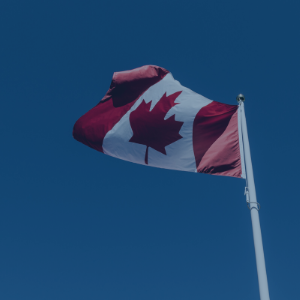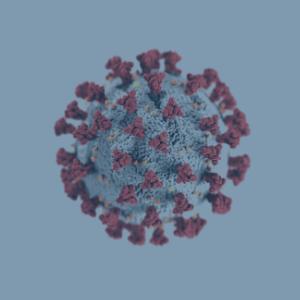
A new INNOVATIVE online poll of 400 Ontarians shows that on most key political measures, Premier Doug Ford’s apology has slowed or stopped his decline. Probing on more detailed COVID-19 attitudes shows Ford vulnerabilities both from the centre and from the populist right, but some strengths within his base.
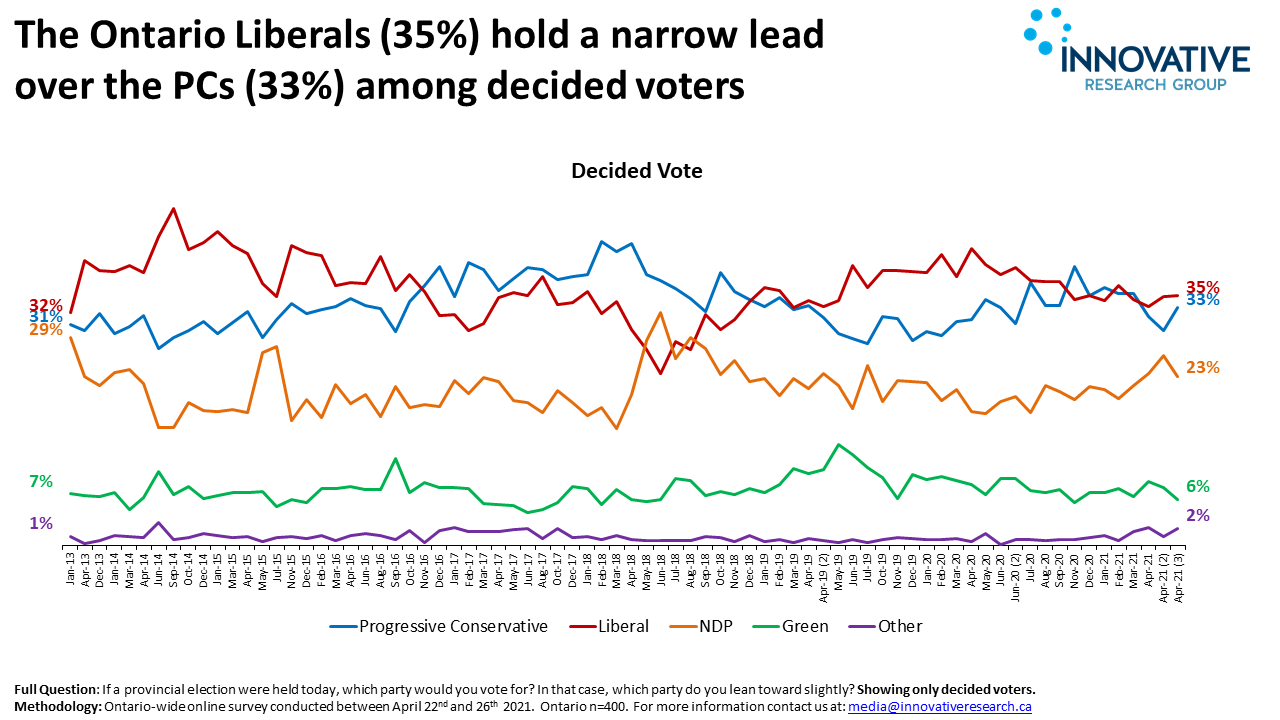
While the Ontario Liberals continue to lead on vote (35% Liberals), the PCs remain close at 33%. Ford continues to slide on favourables: 30% favourable, down 3 points from last week. However, Ford’s rating on best to be Premier remains within the margin of error from last week.
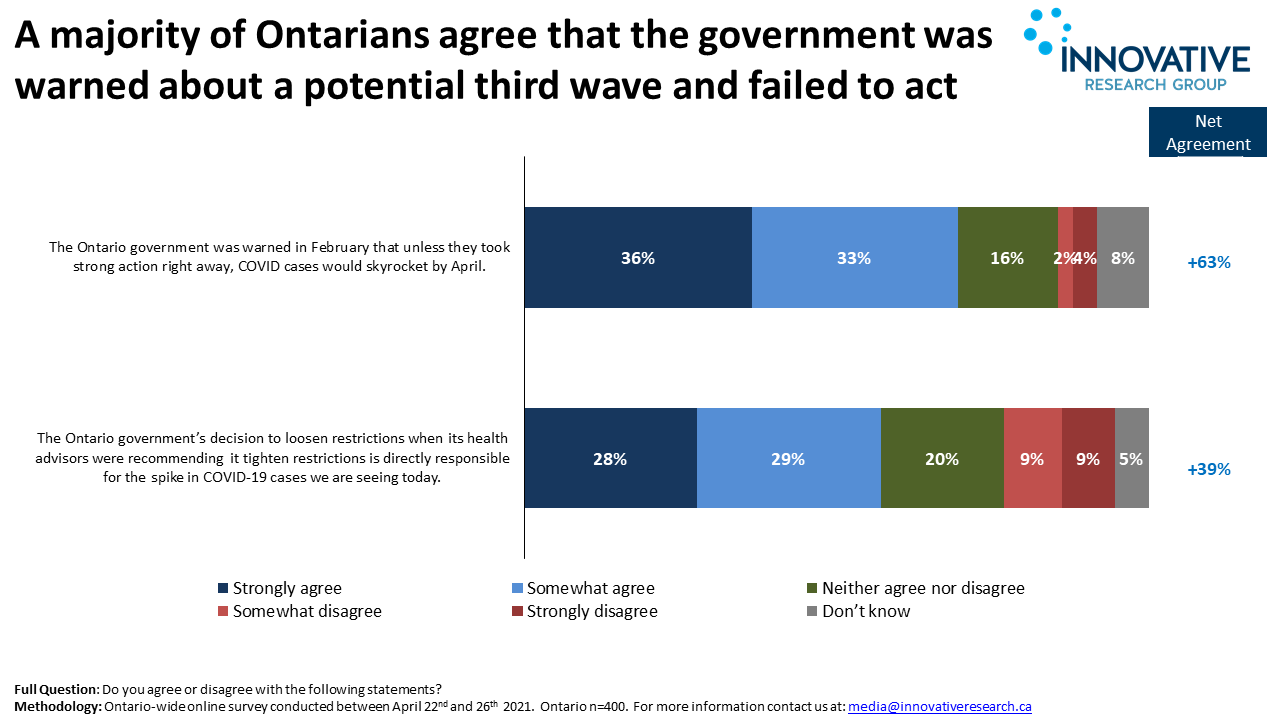
The Premier continues to face some significant challenges:
- 69% agree the government was warned in February that cases could skyrocket without strong action.
- 57% agree that Ontario’s decision to loosen restricts against the advice of health advisors is directly responsible for the spike in COVID-19 cases we are seeing today.
- 53% say the controversy over Ontario’s handling of COVID-19 is a sign of deeper problems.
- A plurality of 49% agree the government seems more focused on scoring political points than fighting COVID-19.
A key finding is that while PCs are less likely than average to believe these statements, agreement among PCs is still relatively high. For instance, 40% of PC identifiers agree that Ontario’s decision to loosen restricts against the advice of health advisors is directly responsible for the spike in COVID-19 cases we are seeing today. This is a critical weakness for Ford.
However, despite these challenges, Ford can take encouragement in the following:
- 40% of Ontarians agree “Doug Ford has accepted responsibility for his mistakes and is taking steps to do better”. Just one third (34%) disagree with 26% remaining uncertain.
- 36% of Ontarians agree “Doug Ford has done his best to balance public health concerns with economic needs”. More (42%) disagree with this view while 22% remain uncertain.
- One-third (35%) agree Ontario has implemented one of the tightest public health lockdowns in the world.
When looking at these numbers, it is important to remember that in a first-past-the-post Parliamentary system, governments do not need the support of a majority. In Ontario with three competitive parties and the Greens, the government can get re-elected with less than 40%. That means seeing the “Doug Ford accepts responsibility” number at 40% is better for the government than people might initially suspect. However, he must hold that level of support to remain competitive.
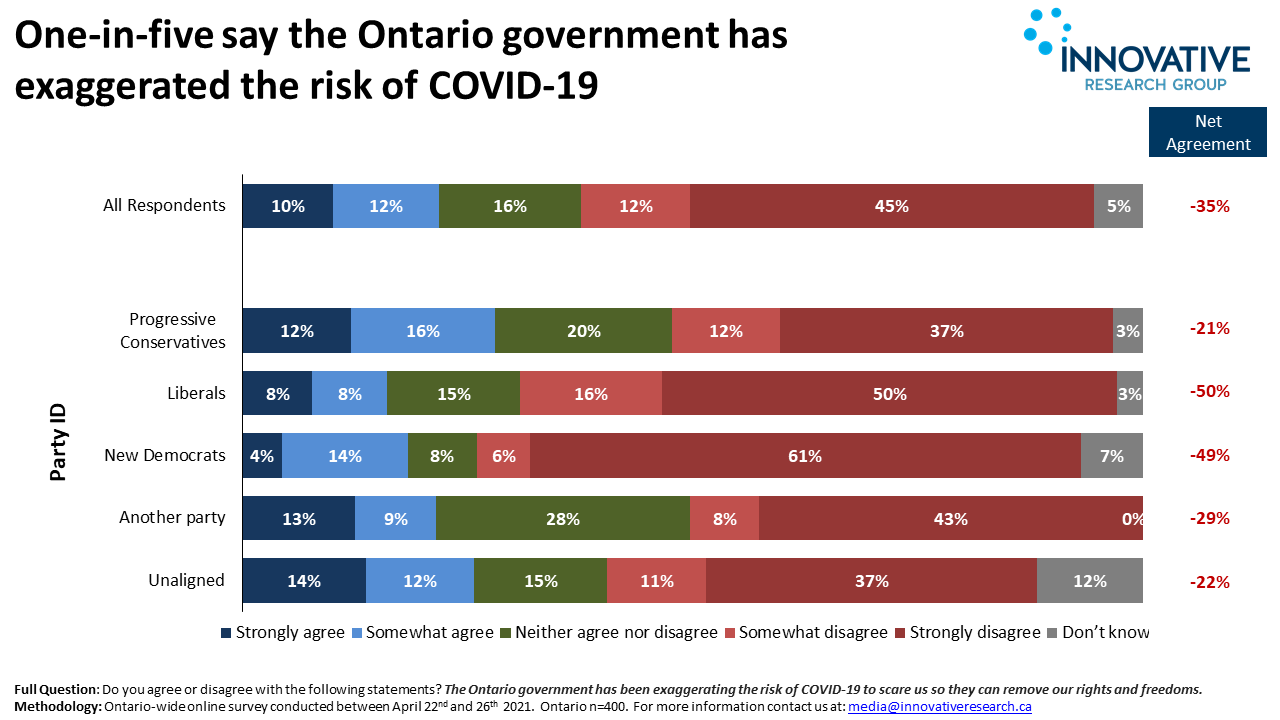
The other wild card in the electoral dynamic is Ford’s populist critics. One-in-five (21%) of Ontarians agree that “The Ontario government has been exaggerating the risk of COVID-19 to scare us so they can remove our rights and freedoms.” While PC identifiers are more likely to agree than average (28%), 16% of Liberal identifiers, 18% of NDP identifiers and 26% of unaligned voters also agree. A year from now as election day approaches, do we expect these populists to support the Liberals or NDP over the Ford PCs?
While many Ontarians do not accept Doug Ford’s apology, enough do to keep the PCs in the race. Ford remains on the ropes, but he is not out of the fight. He has not bounced back from the declines earlier in April, but he has stemmed his slide for now.
If cases continue to decline, Ford will be able to move-off pandemic management and look to economic recovery to rebuild his image and strengthen his competitive position. However, if cases start to increase again, the acceptance of key criticisms by a large part of his base threatens further declines.
For more detailed results, download the full report here.

